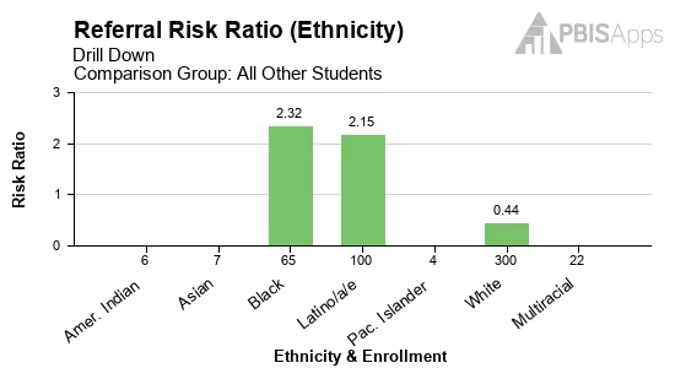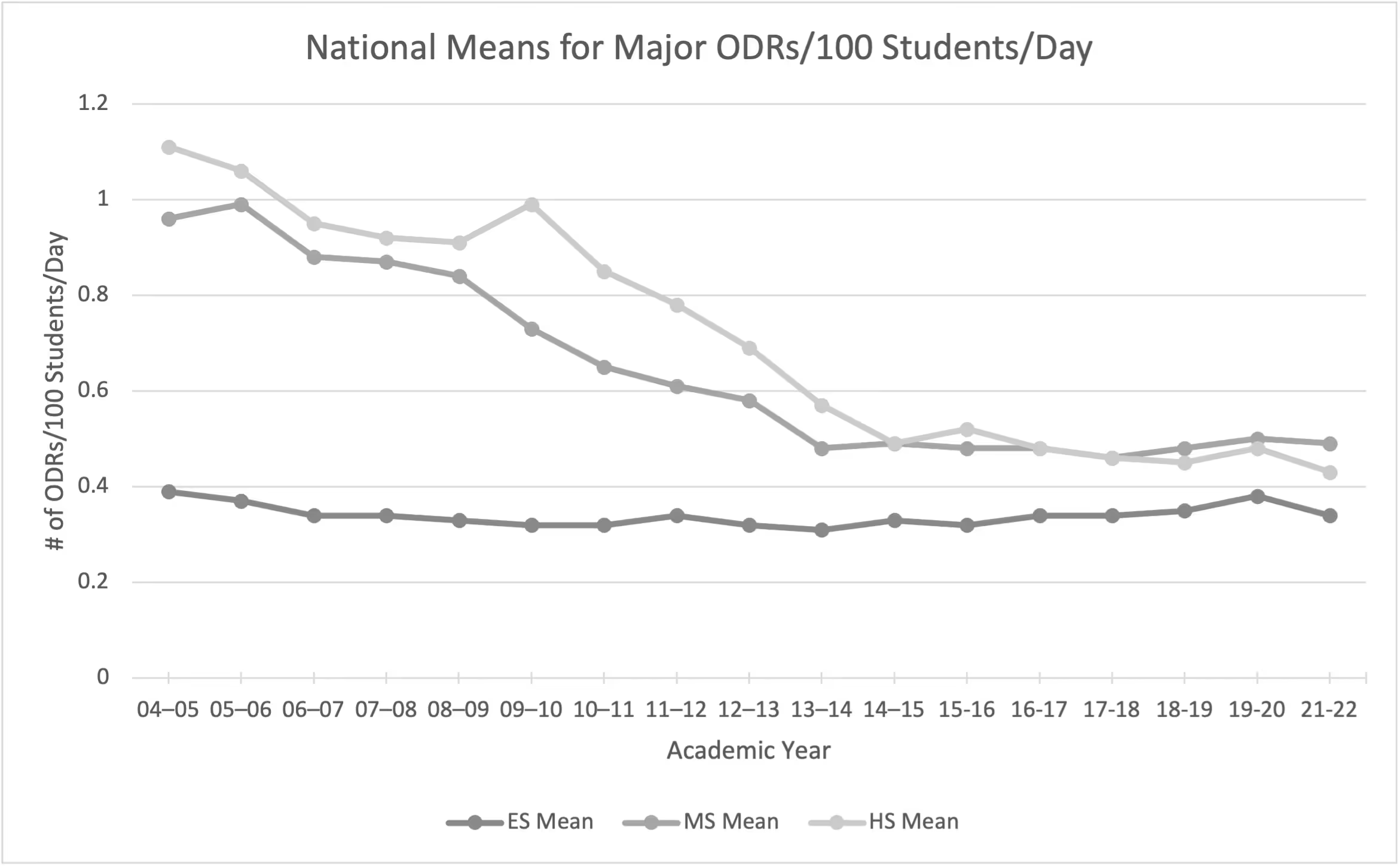Well, what can we say? It's June and that means we've reached the end of another school year.
Milestones like this are a perfect time to look back at all you've accomplished and what you learned along the way. Reflection is an important part of everything you do. It helps us understand "where we have been, what we have experienced, and where we go from here.”1
Last year, we decided to dedicate our June article to the business of looking back and reflecting on the topics, lessons, and research we’ve explored here at Teach by Design. So guess what? This year, we’re solidifying that decision as an annual event!
Yep. We're doing it again!
Since August, we’ve shared 10 Teach by Design articles and 11 Expert Instruction podcast episodes. We’ve explored topics ranging from free play to fidelity, purpose to prevention, and so many topics in between. Here is a rundown of every article from the 2022-23 schoolyear and the lessons we learned along the way.
August
Start with Why: How to Put Purpose Back in Your Work
.avif)
At the beginning of the year, we felt the need to go back to basics in all aspects of implementation. That work had to start with establishing a written purpose we could come back to again and again whenever times got challenging. Your vision statement describes the future you want to see in your work. Your mission statement tells you how you’ll get there. Your purpose statement defines why you want to do the work in the first place. Here's how to write a purpose statement for your school.
The Lesson Learned: We all need a reason to keep showing up to work every day. A schoolwide purpose defines who you are as a community and serves as a touchstone for everything you do.
Listen to the accompanying podcast episode: Benefits and Examples of Creating a Schoolwide Purpose Statement with guest, Dr. Nikole Hollins-Simms
September
Creating Calm: 5 Ways to Prevent Big Behaviors
In our September article, we talked about the escalation cycle and how behavior moves from calm to meltdown and back to calm over the course of seven phases. These are the five ways to promote those calm vibes in your classroom all day long.
The Lesson Learned: Even when things are calm, there are things we can do to prevent them from escalating.
Listen to the accompanying podcast episode: Schoolwide Strategies for Preventing Escalated Behavior with guests, Drs. Kathleen Strickland-Cohen and Alex Newson
October
Slow the Climb: 4 De-escalation Strategies to Keep Behavior from Going Downhill

Building on September’s article, in October we talked about what to do when behaviors continue to climb and climb and climb…Our friends at The Center on PBIS offer four strategies for returning to calm before a behavior gets out of hand.
The Lesson Learned: De-escalation doesn’t have to start after a behavior reaches its peak. Every moment is an opportunity to interrupt the cycle.
Listen to the accompanying podcast episode: How to De-escalate Student Behavior with guests, Ami Flammini, Brian Meyer, and Dr. Kathleen Strickland-Cohen
November
The Serious Business of Play
Sometimes we need to remind ourselves that school should be fun, too. In November, we focused on all the ways you can infuse play into your school day. So often it’s easy for us to think of play existing along a binary — students are either playing or their learning. It turns out, research proves play exists along a continuum! We’ve got examples for you in our November article.
The Lesson Learned: Play doesn’t have to look one way. Sometimes it looks like recess. Sometimes it looks like games in class. All the time, play is a good way to give the social, emotional, behavioral, and academic outcomes you’re trying to achieve a boost.
Listen to the accompanying podcast episode: The Benefits of Play with guests, Dr. Michelle Bauml and Nellie Huggins
December
Our Favorite Things 2022

Our favorite things is an annual event we start planning in the summer. We look forward to it and we’ve heard some of you do, too. This year’s list of favorites included some solid choices. From games to breathe boards, classroom playlists to pencil dispensers, there’s something in it for everyone.
The Lesson Learned: Traditions are meaningful and bring a lot of joy to the work.
January
Dust off Your Practices: 4 Tools to Refresh Your PBIS Framework
When the New Year rolls around, it feels like a good time to recommit to a goal. Based on recently published data from The Center on PBIS, it looks like for some schools January was a good time to recommit to the basics of their PBIS implementation. The pandemic saw a lot of schools pause their PBIS assessments. Well, it’s time to restart! In our January article, we shared four ideas for kickstarting your implementation.
The Lesson Learned: It’s never too late to recommit to your goal.
Listen to the accompanying podcast episode: A Coaching Conversation with guests, Drs. Lisa Powers and Kelsey Morris
February
Equitable Outcomes Require Finding Vulnerable Decisions

In February, our focus turns to equity. Research tells us there are specific times in the day when our decisions are more easily influenced by our unconscious bias. It also tells us that for most schools, those moments are most likely to happen in the classroom, with subjective behaviors, nearly any time of the day. You can use data to find when those vulnerable times are most likely to happen in your school, and we can show you how!
The Lesson Learned: It can be challenging to find an entry for hard conversations. Data can guide you to a starting point, help you navigate through feelings, and get you working toward potential solutions.
Listen to the accompanying podcast episode: Vulnerable Decision Points with guests, Drs. María Reina Santiago-Rosario and Sean Austin
March
Disrupt Your Vulnerable Decisions with These Simple Solutions
Building on our February article, in March we offered strategies for addressing vulnerable decision points (VDPs) once you know what they are. Because we’re big fans of options, we didn’t just serve up one idea and call it a day. No way. In this article, we'll give you four!
The Lesson Learned: Ensuring equity in your implementation requires deliberate, personal decisions based on your own context and style. There isn’t one way to do this work, but it is important to find your way.
Listen to the accompanying podcast episode: Neutralizing Vulnerable Decision Points with guests, Drs. María Reina Santiago-Rosario and Sean Austin
…plus a special bonus episode: Defining Behavior with guests, Diertra Lomeli, Katie Schulz, and Seth May
April
Let’s Talk About Behavior Trends: What the Data Say and How to Address Your Classroom Realities

Nationally, educators are telling us they’ve dealt with more behavior this year than every before. We took a closer look at national behavior trends to dive a little deeper into what’s going on. While the referral trends were surprising, the first place to start before implementing any solution is to go back to basics and confirm you’re doing what you said you’d do schoolwide. In our April article, we shared six questions every team should ask themselves before dosing up the support they provide.
The Lesson Learned: The tiers of support we provide truly work together. Layering additional tiers of support only works when the tiers below are solid.
Listen to the accompanying podcast episode: Dosing Up Schoolwide Support with guests, Dr. Billie Jo Rodriguez and Noah Van Horn
May
PBIS + School Mental Health = A Winning Combination
May is mental health awareness month. So often schools and mental health professionals work side by side, but rarely together. Researchers offer a solution called the Interconnected Systems Framework (ISF) to leverage your PBIS framework as a way to infuse mental health support throughout the continuum. Here’s how to do it.
The Lesson Learned: Your schoolwide community is large. Deliberately inviting collaboration with the people, services, and resources outside your building gets everyone access to the support they need more efficiently.
Listen to the accompanying podcast episode: Integrating Mental Health Supports in Your PBIS Framework with guests Megan Schultz and Kelly Perales
That's it! These are the strategies, studies, and supports we shared over these last 11 months. When I look back on it all, I remember how it felt to dive into the research and pull out the strategies you could implement in your classrooms. I remember all the conversations with educators, coaches, and academics who shared with us new ways of conducting this familiar work. In the moment, I feel like I can appreciate what we accomplished each month. But, when I step back and look over the collective I see all the people, the effort, and the time it took for us to achieve this together.
As you go through the transition into summer, I hope you can take the time to look back on the school year as a whole. Remember the hard parts and the way you kept moving to overcome them. Reflect on all the ways you committed to your schoolwide community by continuing to show up for your students, your colleagues, and yourselves. Write down the lessons you'll take with you from now on. Then, get some rest because we'll be right here in August to start all over again.






